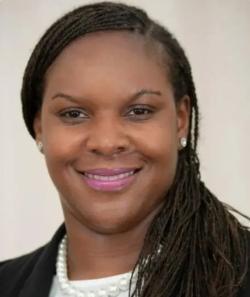The International Mediation Clinic Network was established by Strathclyde Mediation Clinic to offer encouragement, support, and learning opportunities for Mediation Clinics or Centres for Dispute Resolution. It is open to academics, practitioners, students, and anyone interested in mediator education. It creates a platform for sharing best practices, fostering collaboration, and promoting the work of Mediation Clinics within academic institutions. Mediation Clinics are increasingly emerging worldwide across a variety of settings.
The group meets periodically throughout the year to showcase workshops and presentations from Mediation Clinics or Centres from around the world.
Please direct any enquiries to:
Pauline McKay, Mediation Clinic Co-ordinator, University of Strathclyde. T: 44 141 548 4510
Global Mediation Clinics Conference 2026 (part 2) - Online
Wednesday 25 February 2026 at 5pm – 6.30pm (UK time)
Building on the success of our Global Mediation Clinics Conference in October 2025, we are delighted to invite you to our follow up mini conference. This free online event will feature a fresh programme of engaging presentations, showcasing thought provoking topics from South Africa, England and Canada.
Our Speakers
Lisa V Thomas, Advocate/Barrister (South Africa)
From custom to clinic: rethinking mediation through cultural and disciplinary lenses
Lisa is a South African legal professional and former criminal defence advocate with experience across public and private law practice. Admitted to the Bar in 2008, she now focuses on alternative dispute resolution, particularly mediation. She is the Director of Lisa Thomas Legal Academy and works closely with SA Legal Academy in advancing practical legal education. Lisa is also the founder of the SA University Mediation Enthusiasts (S.A.U.M.E.) mentorship platform and leads the Legal Professionals Empowerment Hub, supporting law students and early-career legal professionals. She lectures with the University of Cape Town’s Law@Work Professional Development Project and advocates for ethical, human-centred legal practice.
Simone Bowman, Chair and Trustee, Lambeth Mediation Services (England)
Bridging Differences: Mediation as a Tool for Advancing Diversity and Inclusion

Simone Bowman, born and raised in Lambeth, and joined LMS in 2014 as a dedicated community mediator following her Civil and Commercial accredited training with London School of Mediation [2013]. As a seasoned Mediator, she is emphatic about dispute resolution at all levels. Simone is a practising Family and Civil Law Barrister and Attorney at Law in several Caribbean jurisdictions, where she is often asked to mediate cross jurisdictional Property, Probate and family disputes. She appreciates her family and is a Spurs fan by default of her teenage son. Simone is proud to be the Chair and Trustee of an esteemed charity such as LMS.
Raheena Lalani Dahya, ADR Professor at Humber Polytechnic (Canada)
A Framework for Trauma-Informed Mediation: A Heart and Mind Approach to Conflict Resolution
.jpg)